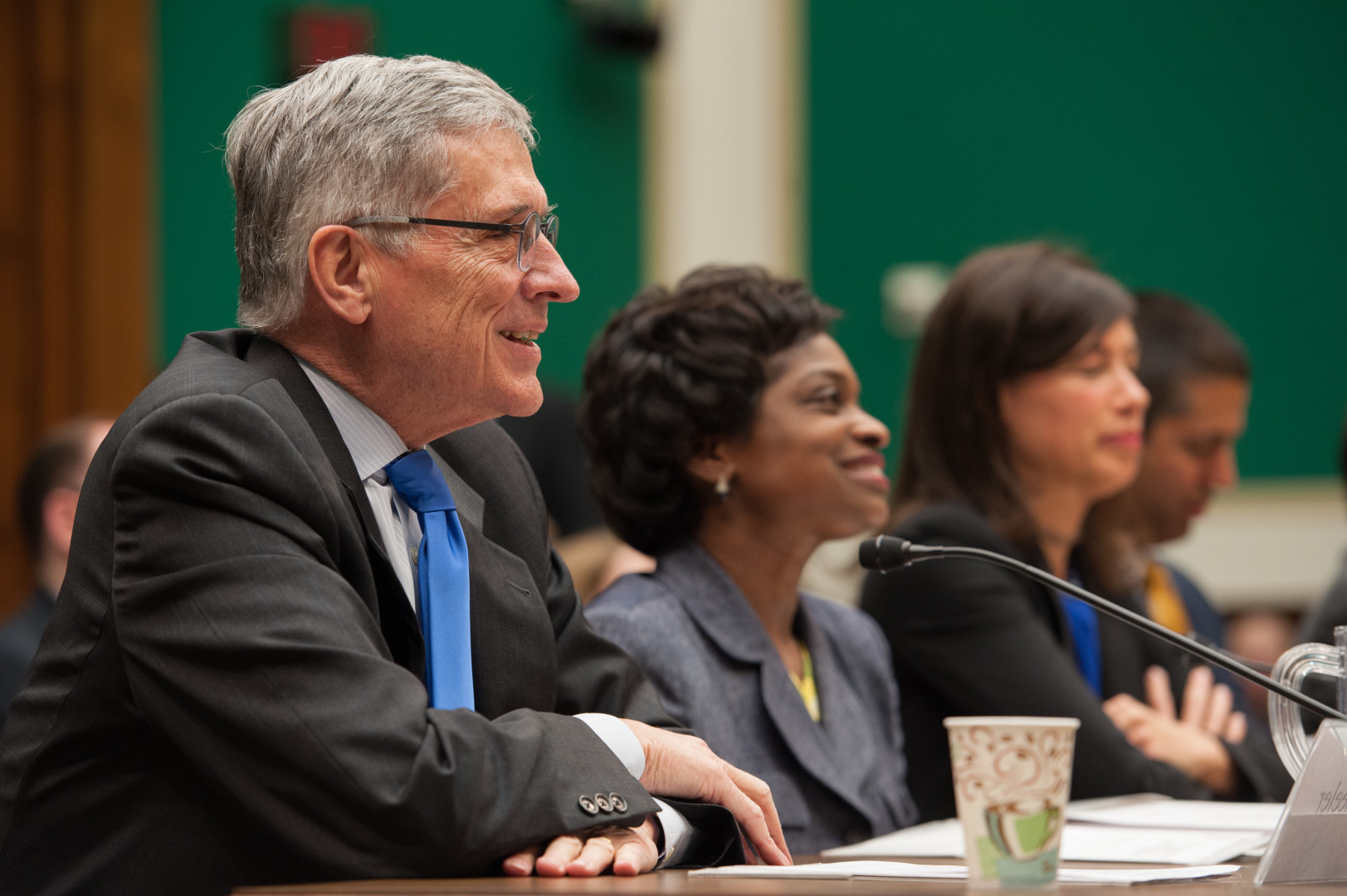September 8, 2016 at 5:12 pm ET
- Share on Facebook
- Share on Twitter
- Share on LinkedIn
- E-mail to a friend



Federal Communications Commission Chairman Tom Wheeler unveiled a new rule Thursday to change the cable set-top box market, writing in a Los Angeles Times op-ed that the new rules will “end the set-top-box stranglehold” and “open the door for innovation.”
In a call with reporters, FCC officials said Wheeler has circulated to the new rules to his fellow commissioners. A vote on the final rule is scheduled for the commission’s open meeting on Sept. 29.
The new rule ditches Wheeler’s old plan to open the pay-TV data streams from set-top boxes to third parties. The final rule relies instead on a new apps-based approach to distributing content. Under the rule, service providers would have to provide apps that are capable of functioning on widely available devices. That would give consumers access to the same programming without the added cost of set-top box rental fees.
The rule, which must be approved by the commission before it is implemented, would also mandate the creation of a new licensing board, made up of cable providers and programmers. The board would be tasked with coming up with a standard license to govern the basic copyright rules for any device platform seeking access to an app.
The FCC would impose an unspecified timeline on the licensing board to create a standard license. (An earlier rumor was that the board would have a two-year window.) The FCC would also “retain some oversight” of the licensing body, according to an FCC official, who said the commission learned its lesson during its CableCard experience, when cable companies “manipulated the process.”
“It’s important for the FCC to have a backstop function to ensure these devices and apps actually make it out to the market,” the official said during Thursday’s call.
The FCC will have the ability to modify license terms if, and only if, they are found to inhibit the competitive marketplace. “This is not to say the FCC can go and willy-nilly modify any terms of the license,” the FCC official said.
But one pay-TV source is unconvinced. “That standard sounds like it has the potential to be very broad,” he said, “because depending on who’s suggesting [the license] is limiting competitiveness, it could essentially open up the licensing to any kind of editing.”
Pay-TV, broadcasting and programming industry sources expressed immediate opposition to a new licensing body overseen by the FCC after rumors of the plan first surfaced earlier this week. As the details of the plan are becoming clearer, some industry participants are already saying they will challenge the provision in court should it pass a final vote later this month.
“I think that if this proposal continues the way it appears, then it’s likely to face a court challenge,” the pay-TV source said.
But, cable companies and programmers are assuaged by the move away from opening up the set-top boxes themselves and instead using an apps-based approach. During the call, an FCC official pushed back against the notion that this was a “significant retreat” on the part of the commission.
“The chairman has always had the goal to provide consumer choice,” the official said. “Like any rulemaking proceeding, we received a lot of substantive input by many stakeholders, and have taken all of that into account in this final proposal.”
A statement sent to reporters from cable company Comcast Corp. commended Wheeler for “abandoning his discredited proposal to break apart cable and satellite services,” but called his new proposal “equally flawed.” The statement specifically singled out an “overly complicated government licensing regime and heavy-handed regulation,” which it said would “stop the apps revolution dead in its tracks.”
Democratic Sens. Richard Blumenthal of Connecticut and Ed Markey of Massachusetts, who both sit on the Senate Commerce, Science and Transportation Committee, praised Wheeler’s proposal in a statement emailed to reporters.
“The FCC is using authority clearly provided by Congress to better allow consumers to choose which device to watch programming for which they have already paid,” Markey said, while Blumenthal congratulated the commission “on their leadership and courage in finally addressing an issue that we have been laboring to solve for twenty years.”
Senate Commerce Committee Chairman John Thune (R-S.D.) criticized Wheeler’s new push. “The law is clear and simple,” he said in a statement provided to Morning Consult. “The FCC does not have the authority to impose technology mandates or to police copyright as Chairman Wheeler has proposed.”
AT&T Inc. criticized the creation of licensing board overseen by the FCC, writing in a blog post that the revision set-top-box proposal “still violates consumer privacy rights and copyright laws” and should be “discarded.”
The Motion Picture Association of America also weighed in, with Chairman and Chief Executive Chris Dodd saying Wheeler’s new proposal “still amounts to a compulsory copyright license that the FCC does not have authority to grant.”
Dodd, a former Democratic senator from Connecticut, said in a statement provided to Morning Consult that MPAA “cannot” support such a license, and he urged the FCC not to “encroach upon copyright holders’ discretion.”